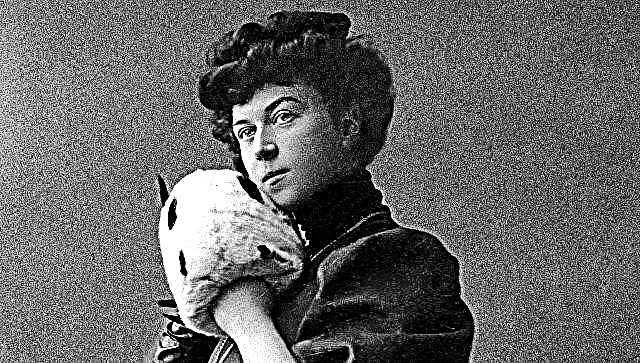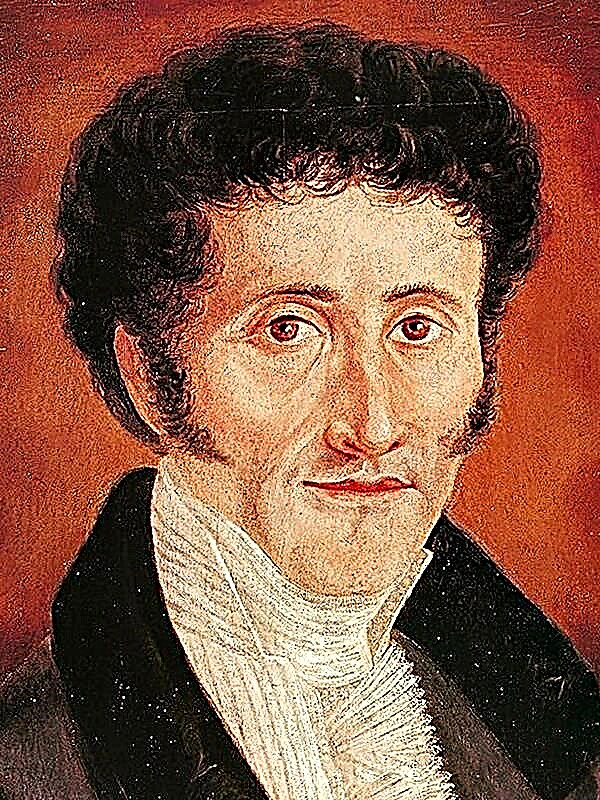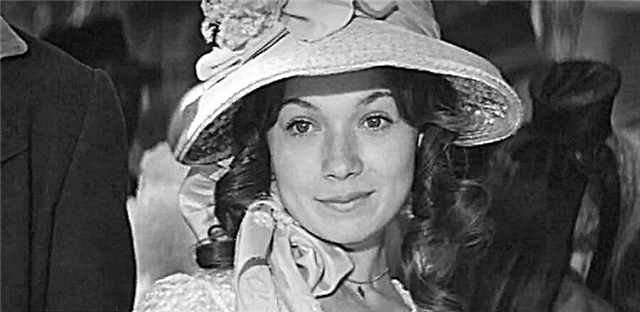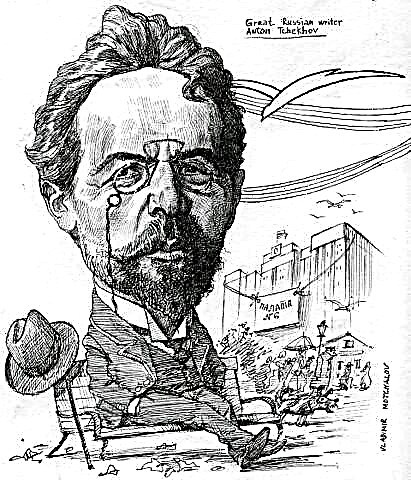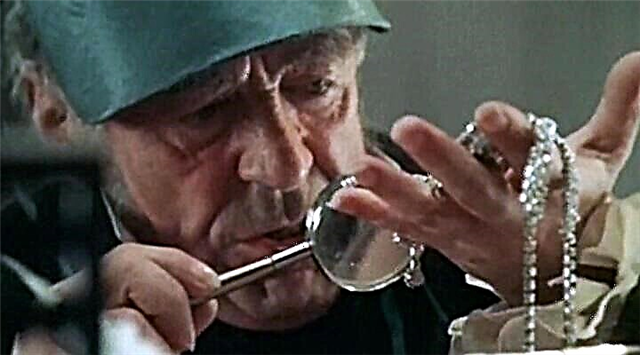It is the sixteenth spring of Nikolai Irtenyev. He is preparing for university exams, filled with dreams and thoughts about his future destiny. To more clearly define the purpose of life, Nikolai sets up a separate notebook where he writes down the duties and rules necessary for moral improvement. On a passionate Wednesday, a gray-haired monk, confessor, comes to the house. After the confession, Nikolai feels like a clean and new person. But at night he suddenly remembers one of his shameful sins, which he hid in confession. He hardly sleeps until the morning and at six o'clock he hurries in a cab to the monastery to confess again. Joyful, Nikolenka comes back, it seems to him that there is no better and cleaner person in the world. He does not hold back and talks about his confession to the cabman. And he replies: "And what, master, is your master's business." The joyful feeling disappears, and Nikolai even experiences some distrust of his wonderful inclinations and qualities.
Nikolai successfully passes the exams and enrolled in the university. Homework congratulate him. On the orders of his father, the coachman Kuzma, span and bay handsome Handsome are at the complete disposal of Nikolai. Having decided that he is already quite an adult, Nikolai buys a lot of different trinkets, a pipe and tobacco on the Kuznetsk bridge. At home, he tries to smoke, but feels nauseous and weak. Dmitry Nekhlyudov, who came after him, rebukes Nikolai, explaining all the stupidity of smoking. Friends with Volodya and Dubkov go to a restaurant to celebrate the entry of the younger Irtenyev to the university. Observing the behavior of young people, Nikolai notes that Nekhlyudov differs from Volodya and Dubkov in the best, right way: he does not smoke, does not play cards, does not talk about love affairs. But Nikolai, because of his boyish delight in adulthood, wants to imitate Volodya and Dubkov. He drinks champagne, lights a cigarette in a restaurant from a burning candle, which stands on a table in front of strangers. As a result, there is a quarrel with a certain Kolpikov. Nicholas feels offended, but tears off his insult on Dubkov, shouting at him unjustly. Realizing the childish behavior of his friend, Nekhlyudov calms and comforts him.
The next day, by order of his father, Nikolenka set off, as an adult, to make visits. He visits the Valakhins, Kornakovs, Ivins, Prince Ivan Ivanovich, with difficulty enduring long hours of forced conversations. Nikolay feels free and easy only in the company of Dmitry Nekhlyudov, who invites him to visit his mother in Kuntsevo. On the way, friends talk on different topics, Nikolai admits that he has recently become completely confused in the variety of new experiences. In Dmitri, he likes calm discretion without a hint of edification, a free and noble mind, he likes that Nekhlyudov forgave the shameful story in a restaurant, as if not giving it special significance. Thanks to conversations with Dmitry, Nikolai begins to understand that growing up is not a simple change in time, but a slow formation of the soul. He admires his friend more and more, falling asleep after a conversation in the Nekhlyudov’s house, thinking about how good it would be if Dmitry married his sister or, conversely, he married Dmitry’s sister.
The next day, Nikolai, at the postal service, leaves for the village, where memories of his childhood, of his mother, come to life with renewed vigor in him. He thinks a lot, thinks about his future place in the world, about the concept of good manners, which requires huge internal work on himself. Enjoying the village life, Nikolai joyfully realizes the ability to see and feel the most subtle nuances of the beauty of nature.
A father at forty-eight years old marries a second time. Children do not like stepmother, a father and a new wife develop a relationship of “quiet hatred” in a few months.
With the beginning of his studies at the university, Nikolai thinks that he dissolves in the mass of the same students and is largely disappointed with the new life. He rushes from talking with Nekhlyudov to participating in student revelry, which are condemned by his friend. Irtenyev is annoyed by conventions of secular society, which for the most part seem to be pretense of insignificant people. Among the students, Nikolai has new acquaintances, and he notes that the main concern of these people is to receive pleasure from life first of all. Under the influence of new acquaintances, he unconsciously follows the same principle. Negligence in learning is paying off: in the first exam, Nikolai fails. For three days he does not leave the room, he feels truly unhappy and has lost all the former joy of life. Dmitry visits him, but because of the cooling that comes in their friendship, Nekhlyudov’s sympathy seems indulgent to Nikolai and therefore insulting.
One late night, Nikolai pulls out a notebook on which is written: "The rules of life." From overwhelming feelings associated with youthful dreams, he cries, but with tears not of despair, but of remorse and moral impulse. He decides to write the rules of life again and never change them again. The first half of youth ends in anticipation of the next, happier.


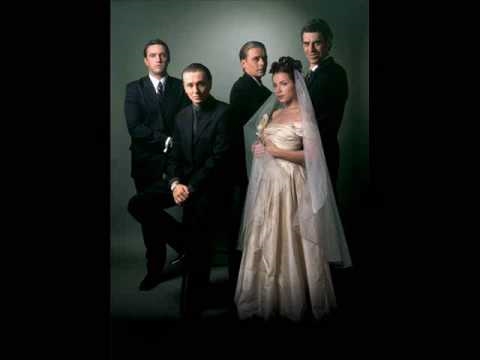

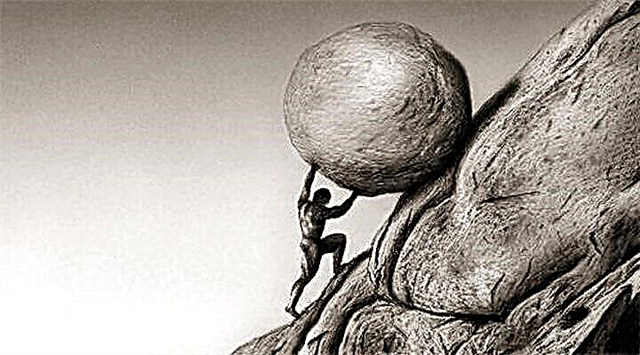 The myth of Sisyphus
The myth of Sisyphus